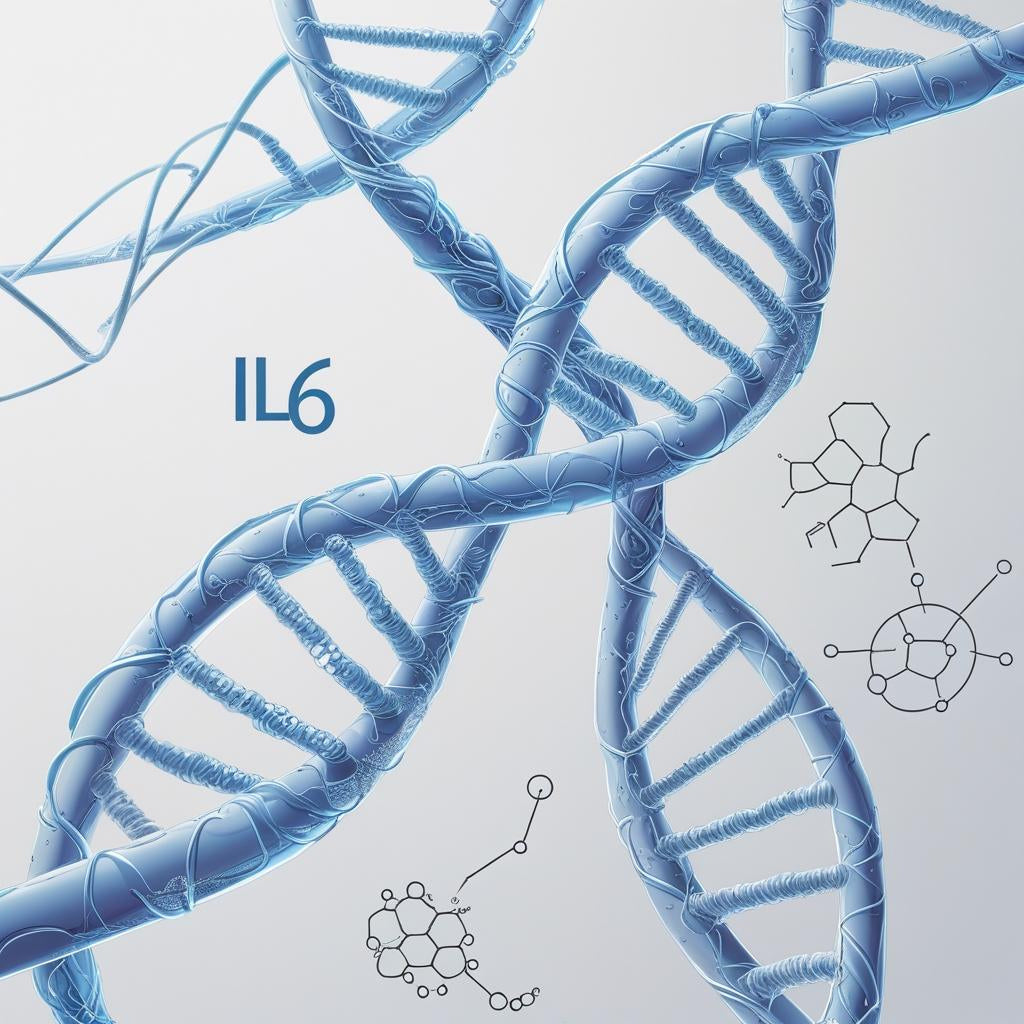
The IL6 gene: your body’s inflammation switch
Understanding its role in health, immunity, and ageing
At Innate Biology, we believe that understanding your genes is the first step in unlocking your body’s natural potential. One gene that plays a powerful, yet often
under-appreciated, role in overall health is IL6.
What is the IL6 gene?
The IL6 gene (short for Interleukin-6) provides instructions for making a cytokine, a type of signaling protein used by the immune system. IL-6 is a key player in the body's inflammatory response and is released during infections, injuries, or physical stress.
Think of IL-6 as your internal emergency responder: it helps the body mount a defence, but when overactive or dysregulated, it can contribute to chronic inflammation.
Why IL6 matters
While inflammation is essential in small, controlled doses (like fighting off a virus or healing a wound), too much IL-6 for too long can be harmful. Research shows that persistent elevation of IL-6 is linked to:
- Chronic inflammatory conditions (like arthritis, asthma, and IBS)
- Cardiovascular disease
- Insulin resistance and metabolic issues
- Mood disorders like depression and anxiety
- Accelerated aging and reduced longevity
On the flip side, a well-regulated IL6 response supports:
- Efficient immune defense
- Faster recovery after exercise
- Tissue regeneration
- Balanced brain and gut health
Genetic variations in IL6: what’s your inflammatory tendency?
Some people are born with SNPs (single nucleotide polymorphisms) in the IL6 gene that can cause them to produce more IL-6 than normal in response to stress. This can make them more prone to inflammation, autoimmune flare-ups, or slower recovery after exercise or injury.
A common IL6 SNP is rs1800795 (–174 G>C):
- The G allele is associated with higher IL-6 production
- The C allele is associated with lower IL-6 production
If you have the GG variant, you may experience more systemic inflammation and benefit from targeted nutritional and lifestyle strategies to calm your IL6 response.
How to support a healthy IL6 gene expression
Whether you carry the high-expression version of IL6 or not, modern lifestyles (poor sleep, processed food, chronic stress) can trigger overproduction. The good news? You can influence how this gene behaves through nutrigenomics - that’s where Innate Biology comes in.
Nutrients that calm IL6
- Omega-3 fatty acids – Found in fish oil, flaxseed, and walnuts
- Curcumin – The active compound in turmeric
- Resveratrol – Found in grapes, berries, and red wine (in moderation)
- Vitamin D – Helps modulate immune response
- Magnesium – Supports inflammation control and nervous system calm
- Quercetin – A powerful antioxidant found in apples and onions
Lifestyle habits that matter
- Get enough sleep: Poor sleep drives IL6 up
- Practice mindfulness or breathwork: Calms the nervous system and lowers IL6 levels
- Avoid processed foods and trans fats: These drive inflammation
- Move your body regularly: Exercise (in moderation) helps regulate IL6 over time
- Intermittent fasting or time-restricted eating may also help reduce inflammation
How Innate Biology supports you
Our mission is to help you live in sync with your genetic blueprint. If you’ve done genetic testing and discovered you have a high IL6 variant, or you simply want to support a calm and resilient immune system, we’re here to guide you. From targeted supplements to personalised wellness plans, we help you turn your genes into your greatest ally, not your obstacle.
Innate Tip
Curious if your IL6 gene might be affecting your mood, recovery, or immune health? Ask us about genetic testing and personalized supplement protocols.
Closing
At Innate Biology, we believe that knowledge is power, and that healing begins at the root. By understanding your genes, you can create a lifestyle that works with your biology, not against it
